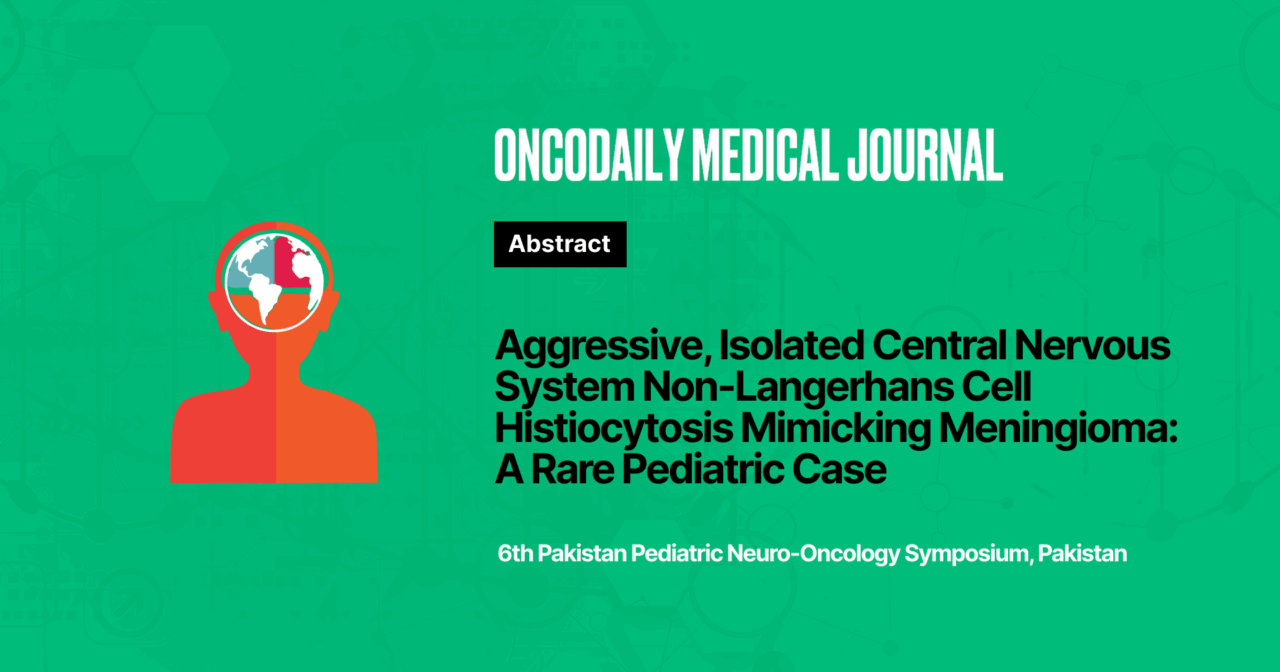Aggressive, Isolated Central Nervous System Non-Langerhans Cell Histiocytosis Mimicking Meningioma: A Rare Pediatric Case
Abstract
Introduction: Non-Langerhans cell histiocytosis (NLCH) encompasses a group of rare histiocytic disorders lacking Langerhans cell markers such as CD1a and Langerin. Isolated central nervous system (CNS) involvement is exceptionally rare, particularly in adolescents.
Methodology: This report was compiled following ethical guidelines. Informed consent was obtained from the patient, and no identifiable information has been disclosed.
Case Presentation: A 17-year-old male presented with seizures, severe headache, vertigo, vomiting, and progressive memory loss. Brain MRI revealed a lobulated, extra-axial temporoparietal mass causing perilesional edema, midline shift, and ventricular effacement. A staged neurosurgical approach began with a decompressive craniotomy. Visual decline and papilledema prompted maximal resection and biopsy. Histopathology revealed CD68+, CD1a–, S100 patchy-positive histiocytes with Touton-like giant cells, suggestive of NLCH. Despite initial improvement, the patient developed hydrocephalus requiring multiple CSF diversion procedures, including two ventriculoperitoneal (VP) shunts and external ventricular drainage (EVD). No extracranial lesions were found on systemic imaging.
Conclusion: NLCH includes three main subtypes: Rosai–Dorfman disease (RDD), Erdheim–Chester disease (ECD), and juvenile xanthogranuloma (JXG). While each subtype has distinct systemic hallmarks, CNS-limited presentations are rare and diagnostically challenging. In this case, the absence of systemic features such as lymphadenopathy (RDD), long bone sclerosis or retroperitoneal fibrosis (ECD), and cutaneous nodules (JXG) complicated classification.
Although histologically benign, the lesion demonstrated aggressive intracranial behavior, including persistent CSF accumulation, worsening vision, and the need for repeated neurosurgical interventions. CNS-restricted histiocytic lesions fall into a diagnostic gray zone, where histological overlap and lack of standardized classification can hinder clinical decision-making.
This case underscores the importance of multidisciplinary evaluation and long-term follow-up in managing such rare entities. We report a rare case of solitary intracranial NLCH in an adolescent without systemic disease. It adds to the limited literature and emphasizes the need for clinical vigilance and broader diagnostic criteria for CNS histiocytic disorders.
Conflict of Interest: None
Funding: None
Disclosure statement: None
License: This article is published under the terms of the Creative Commons Attribution 4.0 International License (CC BY 4.0).
© Shahtaj Tariq, 2025. This license permits unrestricted use, distribution, and reproduction in any medium, provided the original author and source are credited.





